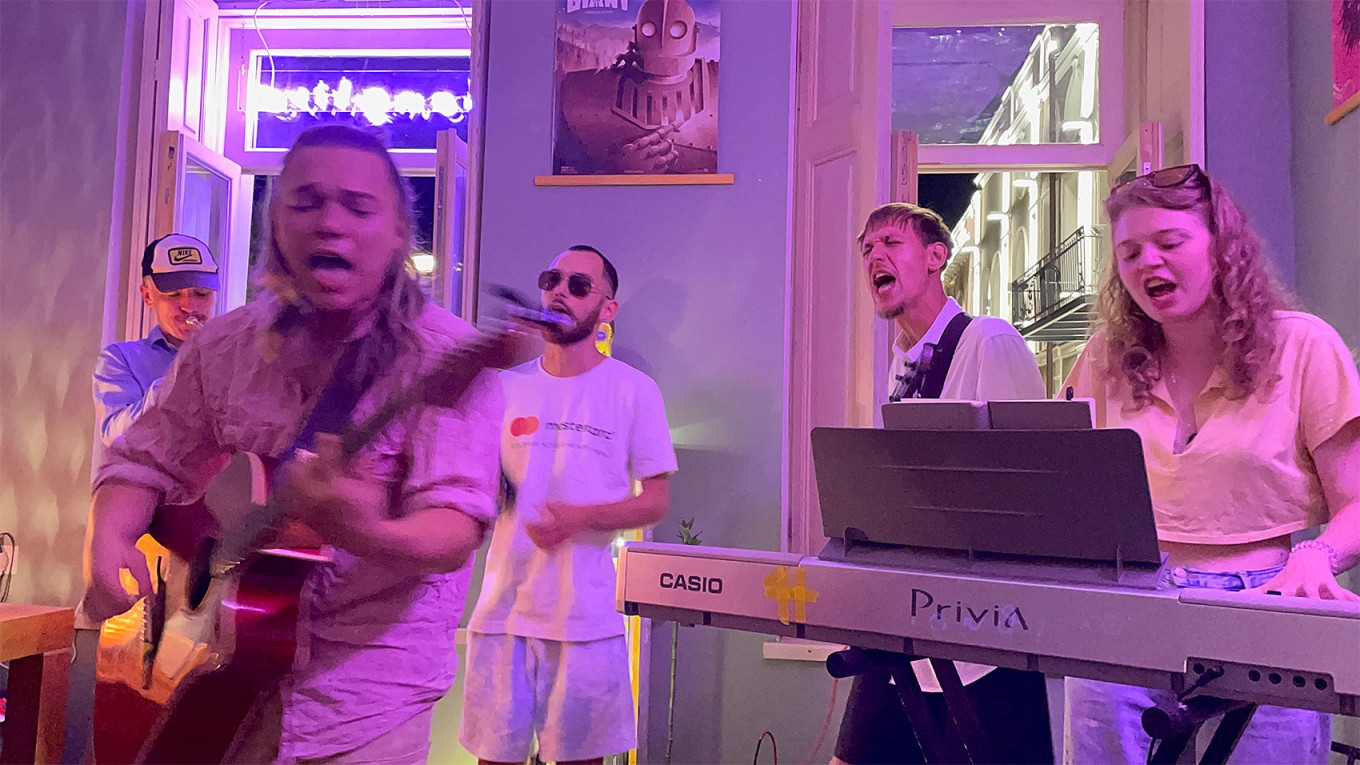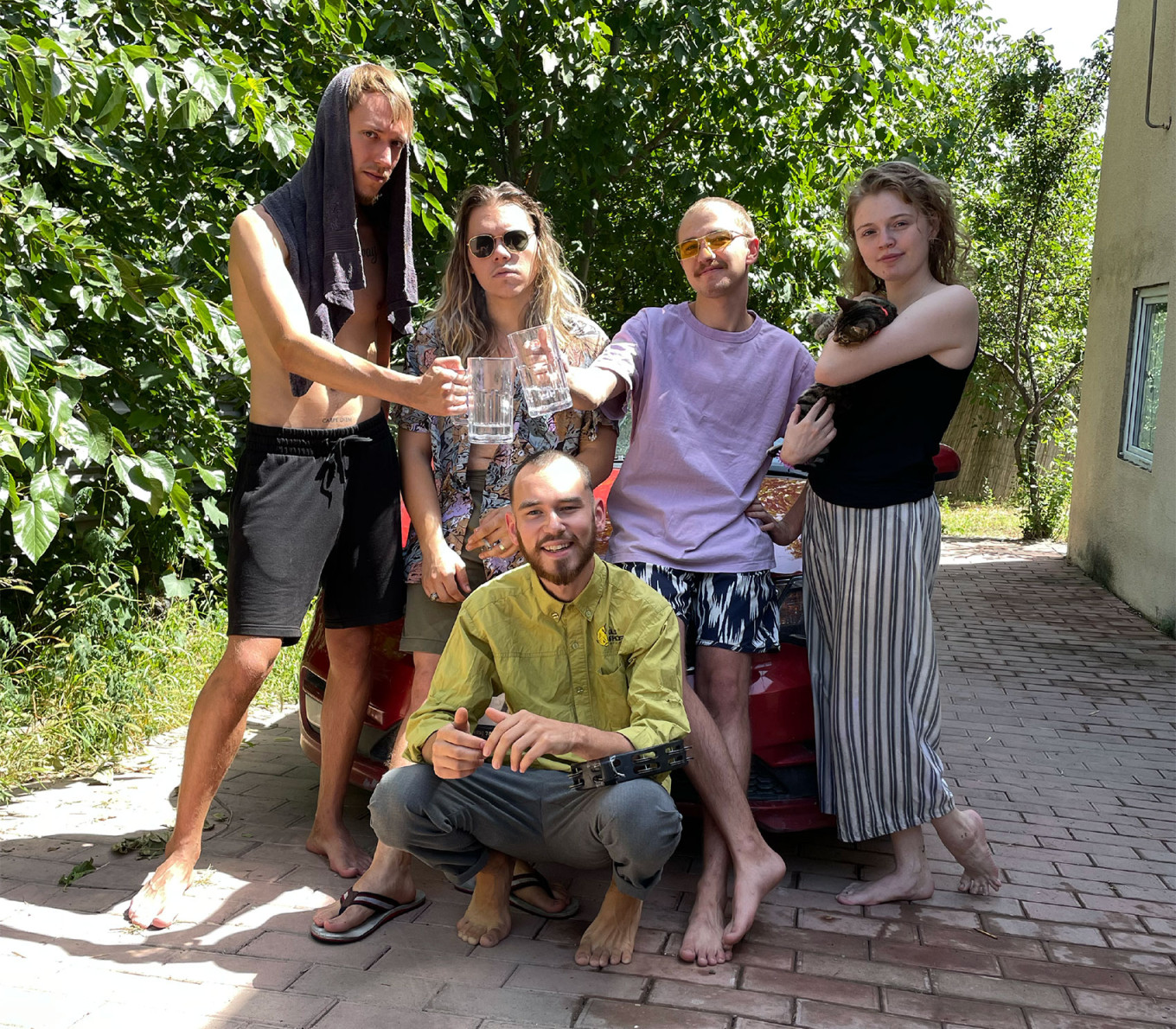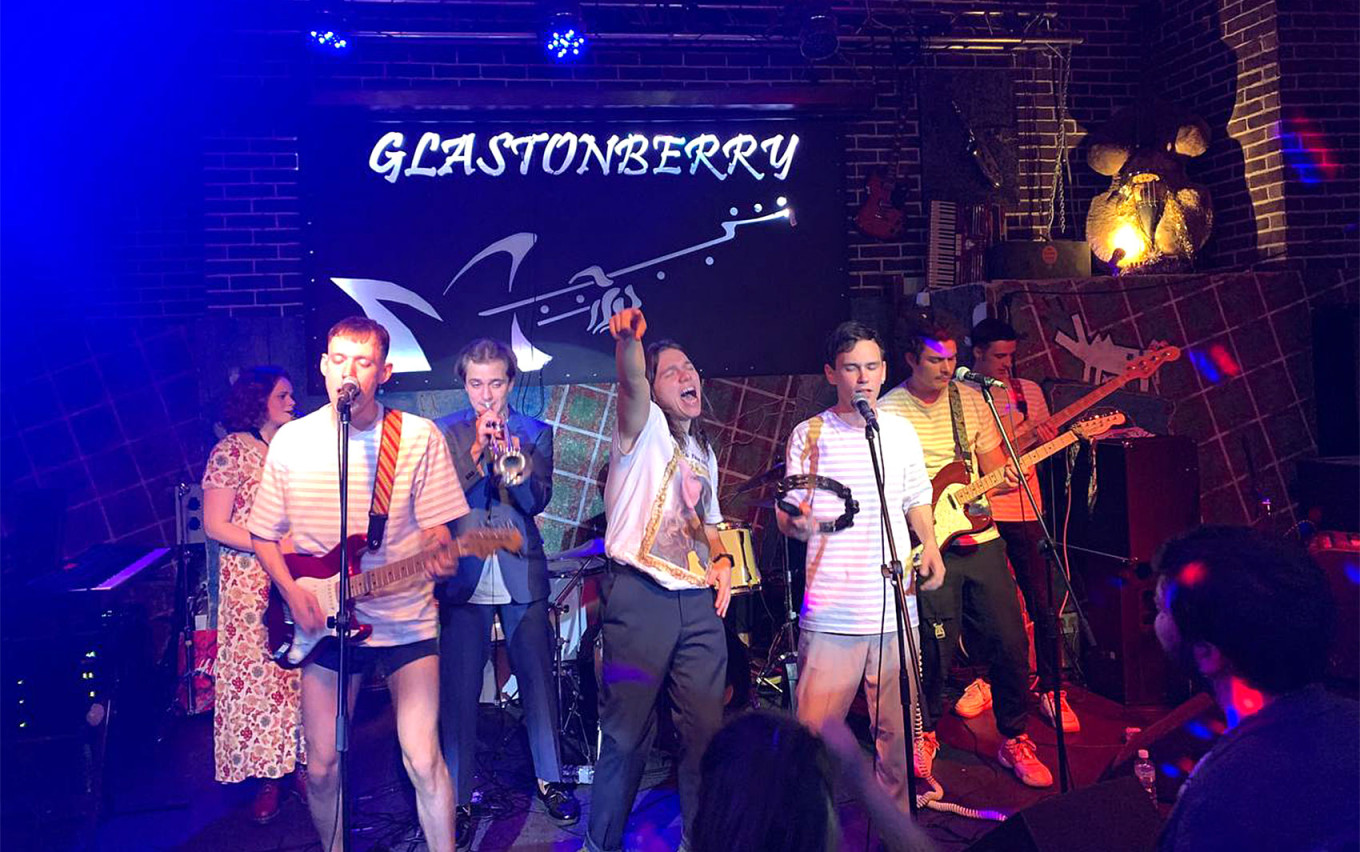“Prisoners of conscience in the hands of bandits and thieves / Order will be disturbed in reality, not in dreams / The force of pressure will push the spring of freedom,” ring out the lyrics to “Right Now,” a new song by Russian rockers Mirolyubivnoye Morye (“Peaceful Sea”).
“Peace to all, not war / In 100 years, instead of thorns and soot, we will see stars.”
In their home country, this uncompromising anti-war song would have put the band’s members at risk of fines or prison time under harsh wartime censorship laws passed after the invasion of Ukraine.
But they are free to perform their message-driven music in the Georgian capital of Tbilisi — where they, and tens of thousands of other Russians, have relocated following Moscow’s invasion.
“We can come and give concerts, sing our own songs in our own language and no one tells us not to,” said band member Yevgeny Chuvilin.
“We are pleased; we were worried that there would be a negative reaction.”
With no end to the war in sight — and little incentive to return home now that Russia is mobilizing its military reserves to fight in Ukraine — many of the estimated 80,000 Russian newcomers to Georgia are putting down roots.

“I spent my first month in Georgia exactly like this, resting from Moscow,” said band member Pavel Tarletskiy, 23, reclining in a hammock on a terrace in northern Tbilisi.
“But the true purpose of my trip was to write music, meet old friends and find new ones,” he added.
Upon arriving in Tbilisi this summer, he reunited with friends and fellow Moscow musicians Chuvilin, Denis Baryshsever and Gleb Shumov, who were some of the first to flee to the Georgian capital in reaction to the Kremlin’s assault on Ukraine in late February.
The young men were members of two separate bands that had enjoyed success in Russia. Pavel and Yevgeny lead Denaturation and describe their style as alternative hip-hop. Gleb and Denis’s band, Mirolyubivnoye Morye, play a fusion of reggae and punk.
Tbilisi is both a new home and fresh musical base for the four musicians: they’ve built a makeshift studio in Gleb’s bedroom and transported their instruments and equipment from Moscow so they can continue to write and release music independently.
“We work as one unit and help each other write songs for our individual bands,” Pavel said, describing their collaboration as a “supergroup.”

They also spend time collaborating with other musicians in the local scene, including fellow Russian emigrants.
“Tbilisi itself is a great place for our music,” Pavel said. “We have made a huge step forward here.”
Keen to rebuild their offline fan base from scratch, the musical hybrid has already performed several concerts in Tbilisi, with crowds made up of new arrivals and longtime residents alike.
As artists, Pavel, Yevgeny, Denis and Gleb have a message to spread and a sound to share. But as immigrants in their early 20s, they face an additional challenge: assimilating and integrating into a new country.
Pavel said fellow emigrés have been a crucial source of camaraderie. The four bandmates spent their first months in Tbilisi working to renovate their rented home, intending for it to become a hub for other newcomers.
“We are more united because of the war,” Pavel explained. “We all came to a new country, everyone is in the same boat; we have all left home, everyone is trying to recreate their own worlds from zero, and people help each other.”
Georgians have also been welcoming and hospitable, they said.
“It’s written on our faces that we’re not local,” Yevgeny said. “They ask us how we’re finding it here, whether we’re settling in.”

The group sees Tbilisi as a place where they hope to truly entrench themselves and become a part of the community.
“We have ended up here and we will be useful here,” Denis said, putting a spin on the old Russian saying “Где родился, там и пригодился” (Where you were born is where you’ll be of use).
“I much prefer what I’ve been doing here,” Pavel added. “I feel needed. It’s a good chance for us to spread our music to other countries.”
As the likelihood of returning home in the near future continues to shrink, the four musicians say they are committed to establishing themselves here as progressive young artists.
“I probably can’t spend a lot of time in Russia now,” said Gleb. “I have a new life here.”
Pavel absentmindedly stroked the head of the band’s adopted kitten, Lari, as he considered his answer to the question, “Where do you think you’ll be in five years’ time?”
“I don’t know,” he said, arms raised in a shrug.
“I don’t know what will happen tomorrow. Who could have imagined we would survive two years of a pandemic, and then there would be a war? I am going to live life, do what I like; write songs, perform concerts, be with friends. In these times you can’t be alone.”
Leave a Reply